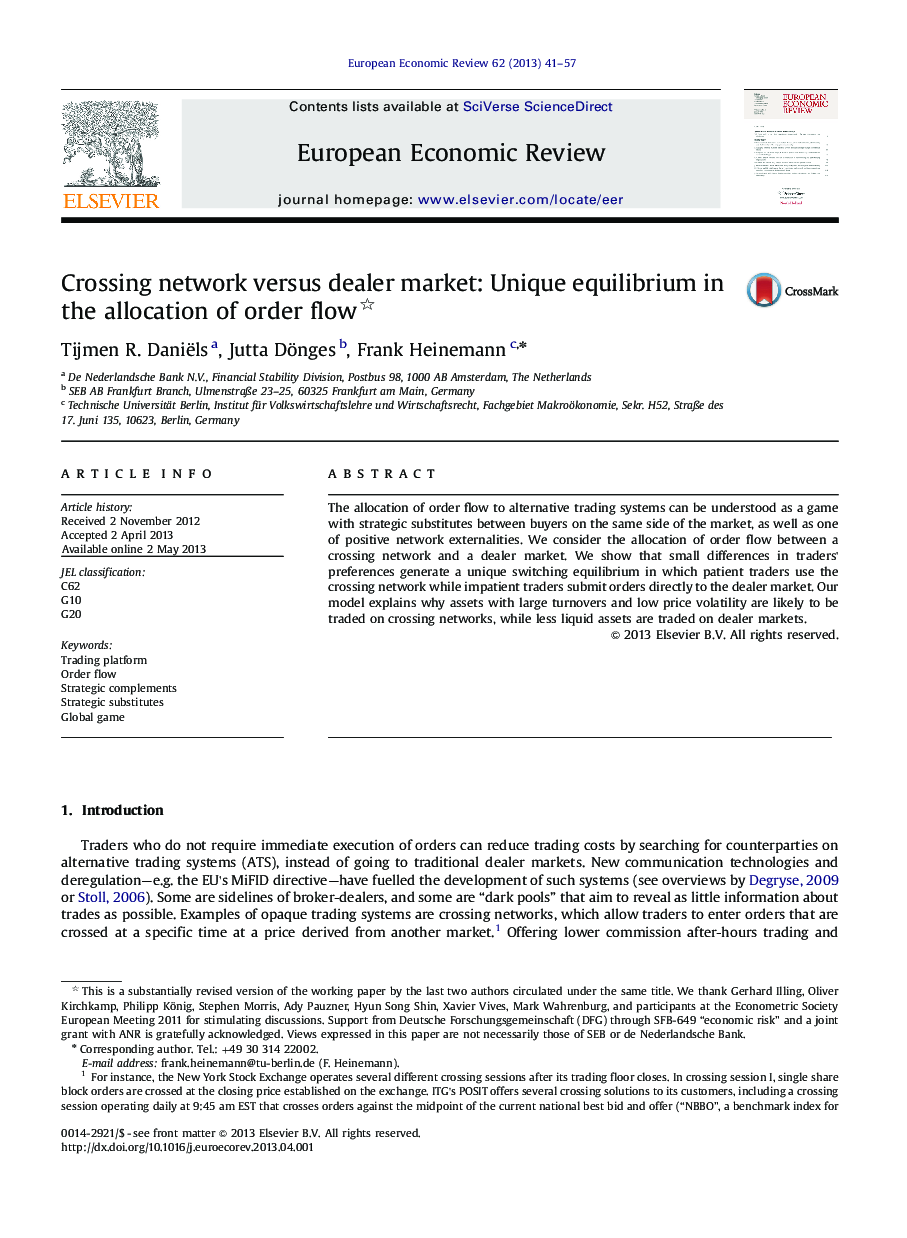| Article ID | Journal | Published Year | Pages | File Type |
|---|---|---|---|---|
| 5066942 | European Economic Review | 2013 | 17 Pages |
â¢Competition for order flow can be viewed as a game with strategic substitutes and positive network externalities.â¢Small differences in traders' liquidity preferences generate a unique switching equilibrium.â¢Assets with large turnovers and low price volatility are likely to be traded on crossing networks.â¢Assets with small turnovers and high price volatility are likely to be traded on dealer markets.
The allocation of order flow to alternative trading systems can be understood as a game with strategic substitutes between buyers on the same side of the market, as well as one of positive network externalities. We consider the allocation of order flow between a crossing network and a dealer market. We show that small differences in traders' preferences generate a unique switching equilibrium in which patient traders use the crossing network while impatient traders submit orders directly to the dealer market. Our model explains why assets with large turnovers and low price volatility are likely to be traded on crossing networks, while less liquid assets are traded on dealer markets.
